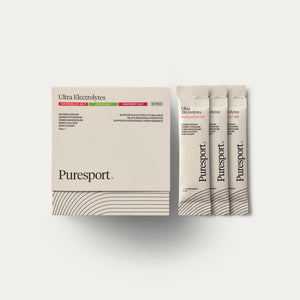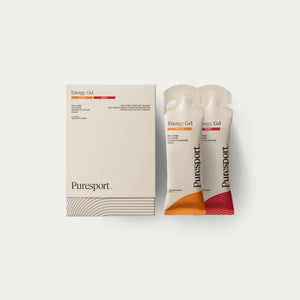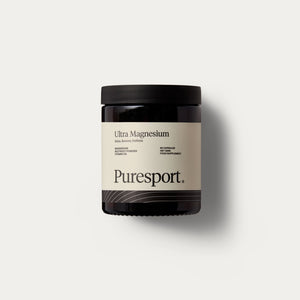What Is CBD?

CBD use has become more widespread in recent years, although there is some debate on the extent of its effectiveness. Found in the cannabis plant, CBD can also be referred to as cannabidiol.
CBD differs from THC in that it has no psychoactive element and cannot therefore produce a feeling of “high”. It is instead taken to relieve conditions such as PTSD, epilepsy or chronic pain. Research is being undertaken to find out how CBD might also benefit arthritis and anxiety.
In 2018, roughly 11% of the UK population had used a CBD product. To quote GQ Magazine, CBD has “gone from dangerous to desirable” due to increased medical research and improved branding for this natural compound.

Those who support CBD oil praise its many uses for relieving conditions such as insomnia and depression, inflammation and chronic pain. However, there are those who believe its benefits are overstated and not yet proven. Others find the legal status of CBD confusing and unclear.
What Is CBD Oil?
Cannabinoids are the chemical compounds that make up the cannabis plant. There are more than 100 different cannabinoids, concentrated to various degrees in specific areas of the plant. The most familiar of these compounds are cannabidiol (or CBD) and tetrahydrocannabinol (known as THC).
These cannabinoids interact with receptors in cells to influence the release of neurotransmitters in the brain. They impact on the body in a variety of ways. In the UK, oil made from CBD is available over-the-counter, as it does not produce a “high”. On the other hand, THC is classified as a controlled substance under the Misuse of Drugs Act 1971 due to its psychoactive elements. CBD oil has become normalised over the past few years but opinions differ on its usefulness. Some praise its benefits while others dismiss it altogether.
What Is CBD Used For?
Chronic Conditions
In 2017 the WHO (World Health Organisation) released a report detailing its findings on the benefits of CBD. The report found that CBD might relieve a variety of chronic diseases or conditions, such as cancer, multiple sclerosis, Parkinson’s disease and Alzheimer’s disease. In addition, it may provide relief for some complications from diabetes and ease the symptoms of anxiety, depression and general pain. It should be noted that research is still ongoing into the health benefits of CBD.
Weight Loss
The journal “Molecular and Cellular Biochemistry” recently published a study linking CBD oil with weight loss. It reported that CBD could help the body to convert white fat cells into brown. White fat cells store excess calories that can lead to conditions such as obesity or diabetes. Brown fat cells, however, burn off as the body generates heat. In this way, CBD oil might be a healthy way to lose weight.
Studies have suggested that CBD can boost the amount of mitochondria in brown fat cells. These literally provide the power for the cells to produce heat and burn calories. CBD might also reduce the generation of protein that makes new fat cells. Scientific research suggests that this provides more evidence of the potential for CBD to aid weight loss.
Notwithstanding all the scientific evidence, currently only a specialist practitioner can prescribe CBD. In addition, it is likely that few patients will be offered CBD as medicine.
How To Take CBD Oil

There are various ways to take CBD oil. It is available in capsule form or taken as a tincture under the tongue. Oral drops or sprays are available or it can be applied directly onto the skin. Gels and rubs are generally used for sporting injuries. Those suffering with arthritis use CBD products to try to reduce their symptoms.
There are many CBD products available both from the high street and online. These include oils, creams, tinctures and even sweets. These days, consumers can choose CBD-infused products, such as bedding, or yoga classes offering guidance in using CBD with meditation.
CBD On The High Street
Many CBD oil products are readily available on today’s high street. The Centre for Medicinal Cannabis (CMC) carried out an analysis of CBD products available on the high street. It found considerable variations in the quality. An article in the Times suggested that more than half of the most popular oils contained less CBD than was labelled.
Despite variations in the quality of CBD products, the market is constantly growing. The CMC predicts that in the UK the annual CBD market may reach nearly one billion pounds within the next five years.

Is CBD Oil Legal?

Most cannabinoids fall under the category of controlled substances under the Misuse of Drugs Act 1971. This can lead to confusion about the legal status in the UK of CBD.
On 14 February 2020 the Food Standards Agency and CBD foods/food supplements released updated information on the importing and sale of CBD. The sale of CBD depends on the product category. No licence is required to sell CBD in the UK as long as it contains 0% THC.
From 13 February 2020, new food products or supplements on the market require a “novel food” application. The European Commission classes food as “novel” if it has not been consumed to a significant degree by humans before 15 May 1997. This applies to EU countries.
Generally, for CBD to be sold legally, sellers must comply with rules on labelling and ensure that the product contains 0% THC.
Laws For CBD Oil
The laws on CBD oil are constantly being updated. In 2015 the Misuse of Drugs (Designation) Act paved the way for the prescribing of Sativex in the UK. Sativex is medical marijuana made from a concentrate taken from the whole plant. Manufactured in the UK, it is used as a mouth spray. It may improve symptoms related to muscle stiffness, or spasticity, in those suffering from multiple sclerosis.
Specialist clinicians are now able to prescribe some medicinal products derived from cannabis. Medicinal cannabis is not licensed and can only be prescribed to a patient if licensed medicines have proved unsuccessful. Confusion over the legal status of CBD has resulted in several well-publicised cases of parents taking their children abroad to receive treatment.
New rules on the manufacture and sale of CBD are expected soon. They should further clarify the legal position on CBD.







